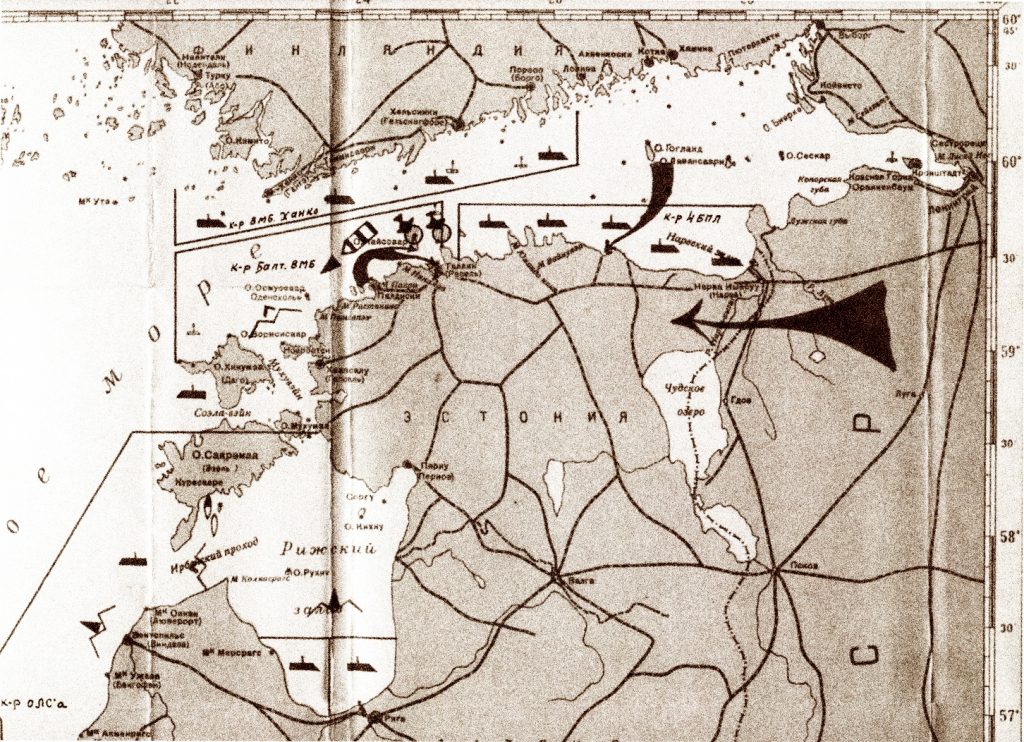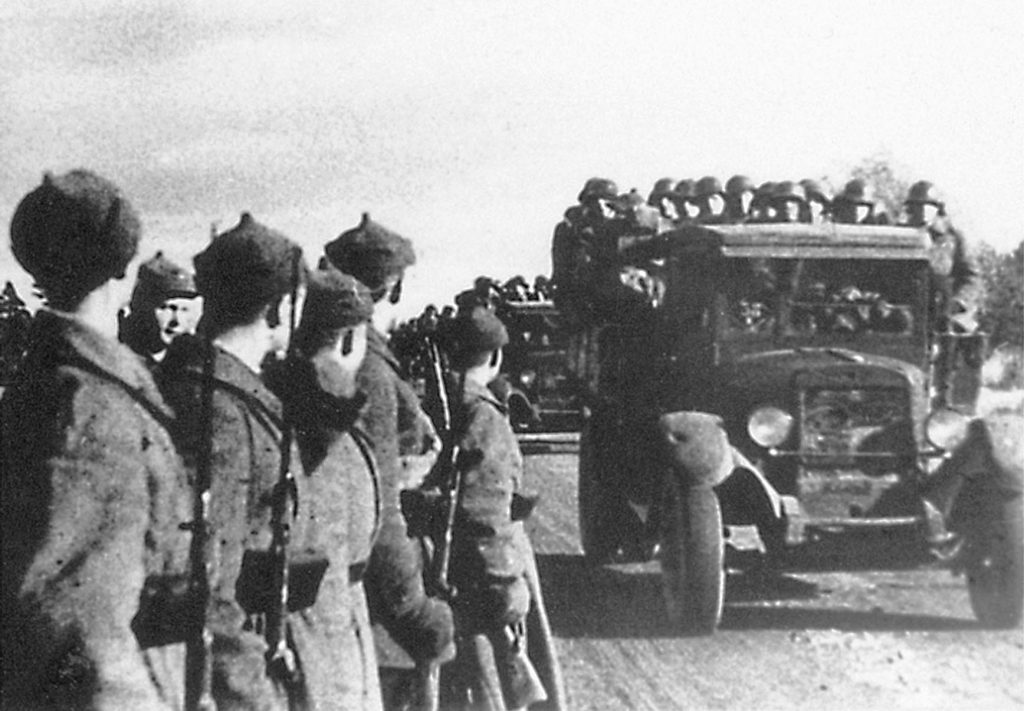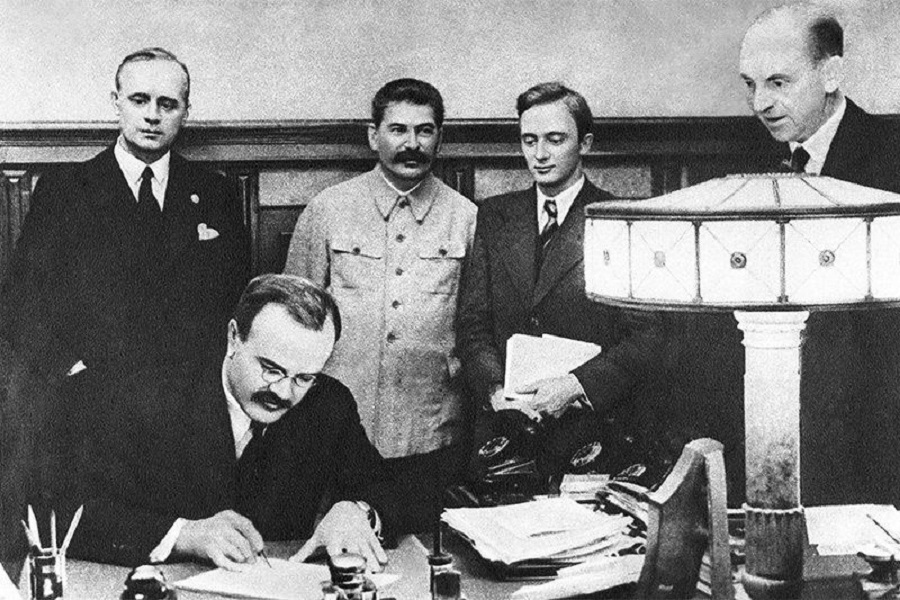The Estonian foreign ministry on 18 June summoned the Russian ambassador to Estonia, Alexander Petrov, regarding the recent initiative in the Russian State Duma to revoke the resolution adopted on 24 December 1989, unanimously condemning the Molotov-Ribbentrop Pact and its secret protocols.
“We express our discontent at the legal initiative being considered in the State Duma,” the Estonian foreign minister, Urmas Reinsalu, said in a statement. “The international community has repeatedly condemned the Molotov-Ribbentrop Pact in the strongest terms. The pact and its secret protocols led directly to the cynical dividing of the world by two totalitarian regimes and paved the way for World War II, one of the most terrible chapters in our shared history.”
Reinsalu noted that the motion is particularly deplorable on the 75th anniversary of the end of World War II, when we specially commemorate all of the victims of the war.
“I hope that Russia does not proceed with a motion that is so disrespectful to the victims of these regimes,” he said.
Similar demarches took place in Latvia and Lithuania.
“Doesn’t match the principles of historic justice”
The Congress of People’s Deputies of the Soviet Union, on 24 December 1989, adopted a resolution on “the political and legal assessment” of the Molotov-Ribbentrop Pact and its secret protocols to condemn the documents and deem them invalid.

In May 2020, the Russian State Duma Deputy, Aleksey Zhuravlyov, the leader of the Rodina party, registered a proposal to recall the resolution, saying that it “doesn’t match the principles of historic justice” and was adopted “in a year of growing political instability, accompanied by pressure from external forces”.
The draft bill was presented to the State Duma on 27 May. The Committee on International Affairs of the State Duma unanimously supported the draft bill on 9 June and submitted it for further consideration.
The Soviet-German Non-Aggression pact, also known as the Molotov-Ribbentrop Pact, was signed in August 1939. It was accompanied by secret protocols that divided Eastern Europe into German and Soviet spheres of influence and led to the Soviet occupation of Estonia, Latvia and Lithuania.
Illegal according to international law
According to the protocols, Romania, Poland, Lithuania, Latvia, Estonia and Finland were divided into German and Soviet “spheres of influence”. In the north, Finland, Estonia and Latvia were assigned to the Soviet sphere. Poland was to be partitioned in the event of its “political rearrangement”: the areas east of the Pisa, Narev, Vistula and San Rivers would go to the Soviet Union, and Germany would occupy the west.
Lithuania, adjacent to East Prussia, would be in the German sphere of influence; however, a second secret protocol, agreed to in September 1939, reassigned most of Lithuania to the Soviet Union.
Another clause of the treaty stipulated that Germany would not interfere with the Soviet Union’s actions towards Bessarabia, then part of Romania; as a result, not only Bessarabia but also Northern Bukovina and Hertza regions were occupied by the Soviets and integrated into the Soviet Union.
According to international law, the secret protocols were illegal and therefore the Soviet occupation of the Baltic countries was also illegal. Most of the Western world, including the US and the UK, never recognised the occupation of Estonia, Latvia and Lithuania.
Russian embassy tweets about “Soviet heritage” in Estonia
The Soviet occupation of Estonia started on 17 June 1940, following an ultimatum by the Soviet Union. In the following days, around 500,000 Soviet troops were stationed in Estonia, Latvia and Lithuania.

Even though the Soviet Union in 1989 declared the Molotov-Ribbentrop pact invalid, the Russian Federation – the successor of the Soviet Union – has never recognised or apologised for the occupation on Estonia, Latvia and Lithuania.
In fact, on 17 June 2020, the Russian embassy in Estonia tweeted that “#Latvia, #Estonia and #Lithuania were considered among the most privileged of the 15 #USSR republics. A larger portion of the #USSR money was injected into developing their potential. #SovietHeritage #SovietEstonia.”
Marko Mihkelson, the vice chairman of the Foreign Affairs committee of the Estonian parliament, said on Facebook that the tweet shows what kind of narrative Russia wants to create or keep alive. “Pay attention, they’re doing this on the day on which marks 80 years from the start of the Soviet occupation of Estonia,” he said. “Unfortunately, it’s a treaded path of the Russian empire-minded diplomacy where the grass has never grown.”
Cover: The signing of the Molotov-Ribbentrop Pact and its secret protocols in Moscow on 23 August 1939.

